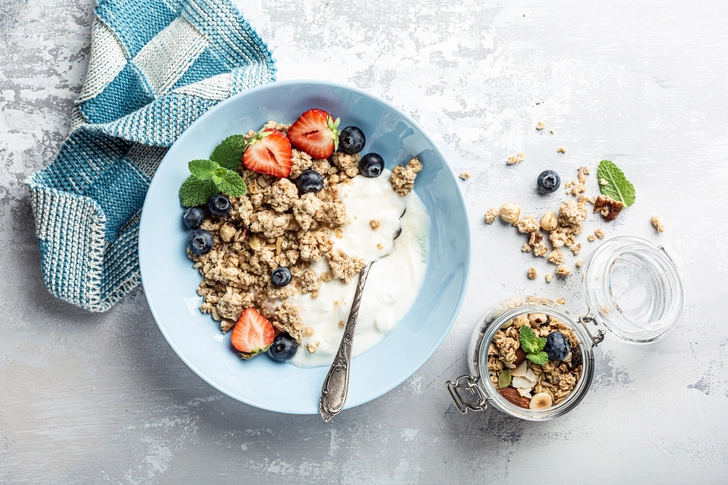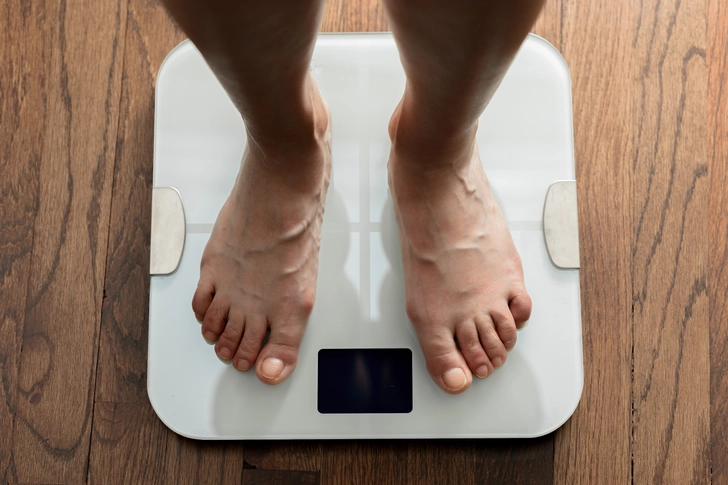10 Small Habits That Can Help You Lose Weight


Start Your Day With a Glass of Water
One or two glasses of water before breakfast can set a positive tone for the rest of the day. Water is calorie-free and can help curb your appetite, potentially leading to a smaller breakfast portion. Moreover, staying hydrated boosts your metabolism, which helps your body burn calories more efficiently.

Work Out Before Breakfast
Exercising on an empty stomach can be more effective for burning fat. Engaging in moderate physical activity before breakfast helps your body utilize stored fat for energy, enhancing the overall results of your workout. This routine can be a powerful tool in your weight loss arsenal.

Eat a High-Protein Breakfast
A high-protein breakfast can make you feel fuller longer, reducing the likelihood of mid-morning snacking. Protein is more difficult for the body to store as fat and requires more energy to digest compared to carbs or fats. Consider meals like eggs with turkey sausage or a Greek yogurt smoothie with peanut butter and berries.

Plan Your Meals for the Day
Taking a few minutes each morning to plan your meals can help you make healthier food choices throughout the day. By deciding in advance what you will eat, you reduce the temptation to reach for high-calorie convenience foods. This habit ensures you stay on track with your dietary goals.

Use Measuring Cups and Spoons
Accurately measuring your food can prevent unintentional overeating. Keep measuring tools handy in your kitchen to ensure you serve appropriate portion sizes, especially for calorie-dense foods like cereal or milk. This habit can significantly reduce your daily caloric intake.

Practice Mindful Eating
When you take the time to focus on your food, appreciating its taste, texture, and aroma, you are more likely to feel satisfied with less. Avoid distractions such as TV or social media during meals. Mindful eating helps you recognize when you are full, which can prevent overeating.

Weigh Yourself Daily
Weighing yourself each morning after using the bathroom can provide a consistent and accurate measure of your progress. This daily reminder can motivate you to stick to your healthy eating plan and exercise routine. However, it's important not to become overly fixated on the scale, as weight can fluctuate due to various factors.

Get Some Sunlight
Exposure to natural sunlight in the morning has been linked to a lower body mass index (BMI). Sunlight helps regulate your circadian rhythms, which can improve your sleep patterns and overall metabolism. Aim to spend a few minutes outside each morning to soak up some beneficial rays.

Set Up Triggers for Healthy Habits
Positive triggers can remind you to stick to your new habits. For instance, set an alarm to remind you to drink water, or place a sticky note on your fridge to encourage healthy snacking. Associating your new habit with an existing routine, like drinking water after washing your hands, can make it easier to remember.

Support Your New Habits
Enlist the help of friends, family, or social media communities to support your weight loss journey. Sharing your goals and progress with others can provide motivation and accountability. Additionally, positive affirmations and self-talk can reinforce your commitment to new habits.
Photo Credits:
Slide 1: E+/Getty Images
Slide 2: E+/Getty Images
Slide 3: Moment/Getty Images
Slide 4: Moment/Getty Images
Slide 5: Cavan/Getty Images
Slide 6: E+/Getty Images
Slide 7: Moment/Getty Images
Slide 8: E+/Getty Images
Slide 9: iStock/Getty Images
Slide 10: Cavan/Getty Images
SOURCES:
Fogg, B. Persuasive Technology Lab, Stanford University: “A Behavior Model for Persuasive Design,” 2009.
The Stanford Behavior Wizard: ""GreenPath Behavior Overview;"" ""BluePath Behavior Overview;"" and ""PurplePath Behavior Overview.""IMAGES PROVIDED BY:
Cleveland Clinic: “When Is the Best Time to Weigh Yourself?”
Journal of Clinical and Diagnostic Research: “Effect of ‘water induced thermogenesis’ on body weight, body-mass index, and body composition of overweight subjects.”
Johns Hopkins University: “Yes, drinking more water may help you lose weight.”
Journal of Clinical Endocrinology and Metabolism: “Lipid Metabolism Links Nutrient-Exercise Timing to Insulin Sensitivity in Men Classified as Overweight or Obese.”
The Proceedings of the Nutrition Society: “Is exercise best served on an empty stomach?”
National Association of Sports Medicine: “Protein and Weight Loss: How Much Protein Should You Eat to Lose Weight?”
Intermountain Healthcare: “Quick and Easy High Protein Breakfast Ideas.”
Beaumont Health: “Health Benefits of Meal Planning.”
Sunlight Institute: “Staying Slim With Sunlight.”
Leukemia and Lymphoma Society: “Portion Control.”
Mayo Clinic: “Lose weight with mindful eating,” “Weight loss: feel full on fewer calories.”
HealthySD.gov: “The best and worst beverages for weight loss.”
Rutgers University: “Lose Weight Without Dieting.”
Oregon State University: “Fill It Up? How the Shape of Your Glass May Affect Your Shape.”
CDC: “Planning Meals.”
Cedars-Sinai: “Health Effects of a Long Commute.”
American Academy of Nutrition and Dietetics: “Creating a grocery list,” “7 Ways to Enhance the Flavors of Your Meals.”
Appetite: “Capsaicinoids and capsinoids: A potential role for weight management? A systemic review of the evidence.”
Penn Medicine: “Spice Up Your Life: The Health Benefits of Spicy Foods.”
Sleep Foundation: “Weight Loss and Sleep.”SOURCES:
Caroline Apovian, MD, Nutrition and Weight Management Center, Boston Medical Center.
Monica Auslander, registered dietitian, Essence Nutrition, Miami.
Alison Borkowska, PhD, WeightNot.
Jewels Lett, registered dietitian.
Jessica Levings, Balanced Pantry.
Dana Simpler, MD, Mercy Medical Center.
Adrienne Youdim, MD.
Robert Ziltzer, MD, Scottsdale Weight Loss Center.
Academy of Nutrition and Dietetics: “Staying Away from Fad Diets.”
BMJ Open: ""Effects of changes in eating speed on obesity in patients with diabetes: a secondary analysis of longitudinal health check-up data.""
Canadian Family Physician: ""Intermittent fasting and weight loss""
Cell Metabolism: ""Late isocaloric eating increases hunger, decreases energy expenditure, and modifies metabolic pathways in adults with overweight and obesity.""
CDC: “Losing Weight.” ""Physical Activity for A Healthy Weight.""
Cleveland Clinic: ""Is it Healthy to Lose 10 Pounds in a Week?""
Diabetes Spectrum: ""Mindful Eating: The Art of Presence While You Eat.""
Harvard Health Publishing: ""4 intermittent fasting side effects to watch out for.""
Harvard Nutrition Source Diet Review: ""Intermittent Fasting for Weight Loss.""
International Journal of Behavioral Medicine: “The association between rate of initial weight loss and long-term success in obesity treatment: does slow and steady win the race?”
International Journal of Behavioral Nutrition and Physical Activity: ""The effect of a motivational intervention on weight loss is moderated by level of baseline controlled motivation.""
Johns Hopkins Medicine: ""Intermittent Fasting: What is it, and how does it work?""
Mayo Clinic: “Chart of High-Fiber Foods,” ""Diet: 11 setback recovery tips,"" ""Low-glycemic diet: What's behind the claims?"" ""Weight Loss.""
Mount Sinai: ""Rapid Weight Loss.""
National Heart, Lung, and Blood Institute: “Healthy Eating Plan.”
Nutrients: ""Slow Down: Behavioural and Physiological Effects of Reducing Eating Rate,"" ""Sleep Deprivation: Effects on Weight Loss and Weight Loss Maintenance.""
Obesity Reviews: “Lessons from obesity management programmes: greater initial weight loss improves long-term maintenance.”
Patient Education and Counseling: ""Goal setting as a health behavior change strategy in overweight and obese adults: a systematic literature review examining intervention components.""
USDA: “All About the Protein Foods Group.”